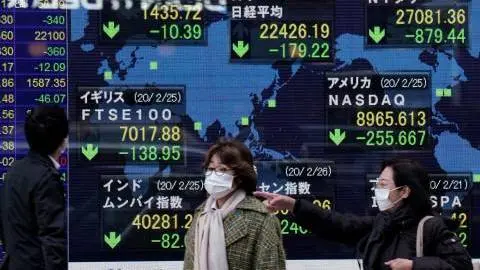VoxEU: Lockdowns boost support for incumbents, trust in government
Major crises can act as catalysts – either destabilising or strengthening the political regimes that oversee them, depending on how citizens view their government’s performance, writes André Blais, Damien Bol, Marco Giani, Peter John Loewen for VoxEU
Introduction
The 2020 Covid-19 pandemic has created a difficult trade-off for policymakers (Boeri et al. 2020). On the one hand is the need to impose strict social containment, also known as lockdown, to slow the spread of the virus and protect populations at risk while helping hospitals with limited intensive care units to cope with the number of infected patients – a policy objective that is often labelled ‘flattening the curve’ (Anderson et al. 2020). On the other hand, lockdowns have important negative consequences. First, they drastically reduce the civil liberties of citizens who see their right to travel freely limited to a minimum. Second, lockdowns will have dramatic consequences for the economy, in the short-term and the long-term. Evidence shows that experts and citizens alike share concerns about the human and economic costs of lockdowns (Baldwin and di Mauro 2020, Fetzer et al. 2020).
This policy trade-off has placed the state under a spotlight. Governments need to make hard decisions that can further destabilise or reinforce their authority. In times of crisis – after a natural disaster, for instance – a government’s policy response can rally citizens around the flag and fortify their support for institutions (e.g. Bechtel and Hainmueller 2011, Healy and Malhorta 2009). Or, such crises can shift citizens’ views of these institutions, even leading to a regime change (e.g. Acemoglu and Robinson 2001, Aidt and Leon 2016). In a new paper, we document how Covid-19 lockdowns have affected citizens’ trust in their incumbents and institutions in the context of democratic Western Europe (Blais et al 2020). We find that the lockdowns have increased support for the democratic status quo: citizens report being more likely to vote for the incumbent, trusting in the government, and satisfaction with democracy.
A key quote from the article
Our findings bring good news for democracy, or at least for status quo democratic institutions. An argument could be made that dictatorships are better equipped to make the tough and drastic decisions required in a pandemic crisis, while democratically elected governments would be too prudent to adopt the necessary stringent measures. Instead, most democratic governments have enacted stringent confinement measures and been rewarded with increased support. Perhaps most importantly, lockdowns have produced higher satisfaction with the way democracy works. Apparently, most citizens understand that strict social confinement is necessary. They appreciate seeing their fears taken into account by their elected governments and even prioritised over economic interests. Even in this populist age, traditional political institutions enjoy some support.
The full original article first appeared on VoxEU here.
This publication has been prepared by ING solely for information purposes irrespective of a particular user's means, financial situation or investment objectives. The information does not constitute investment recommendation, and nor is it investment, legal or tax advice or an offer or solicitation to purchase or sell any financial instrument. Read more
Download
Download opinion
12 May 2020
New Horizons Hub: Negative interest rates for the post-crisis recovery? This bundle contains 4 Articles